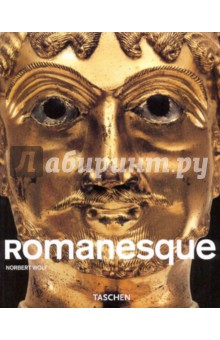Описание книги
Reaching its peak in the 11th and 12th centuries, the Romanesque movement was marked by a peculiar, vivid, and often monumental expressiveness in architecture and fine arts. The main centres were located in Italy, France, the German-language countries, Spain, and England, though the voices of Scandinavia and Eastern Europe expressed themselves distinctly in the genre, which patterned itself on antique and Byzantine art. Despite untold losses, countless Romanesque masterpieces remain preserved today.
Highlights include: Frescoes in Galliano near Cantu, Sant`Angelo in Formis, Saint Chef, Saint-Savin-sur Gartempe, Lambach, San Pietro al Monte near Civate, San Clemente in Rome, from San Maria de Tahull, Berze-la-Ville, Tavant, Panteon de los Reyes in Leon, Castel Appiano, from Sigena; the golden Altar-Piece from Lisbjerg; the Bayeux Tapestry; stained glass in the Cathedral of Augsburg and Le Mans, mosaics in San Clemete, Rome, and in San Marco, Venice; colored panels and crosses from La Seo de Urgel, Sarzana, and the painted ceiling in St. Michael, Hildesheim; sculptures in Souillac, Autun, and Santiago de Compostela; examples of metalwork, of manuscripts and enamels.
Издание на английском языке.
